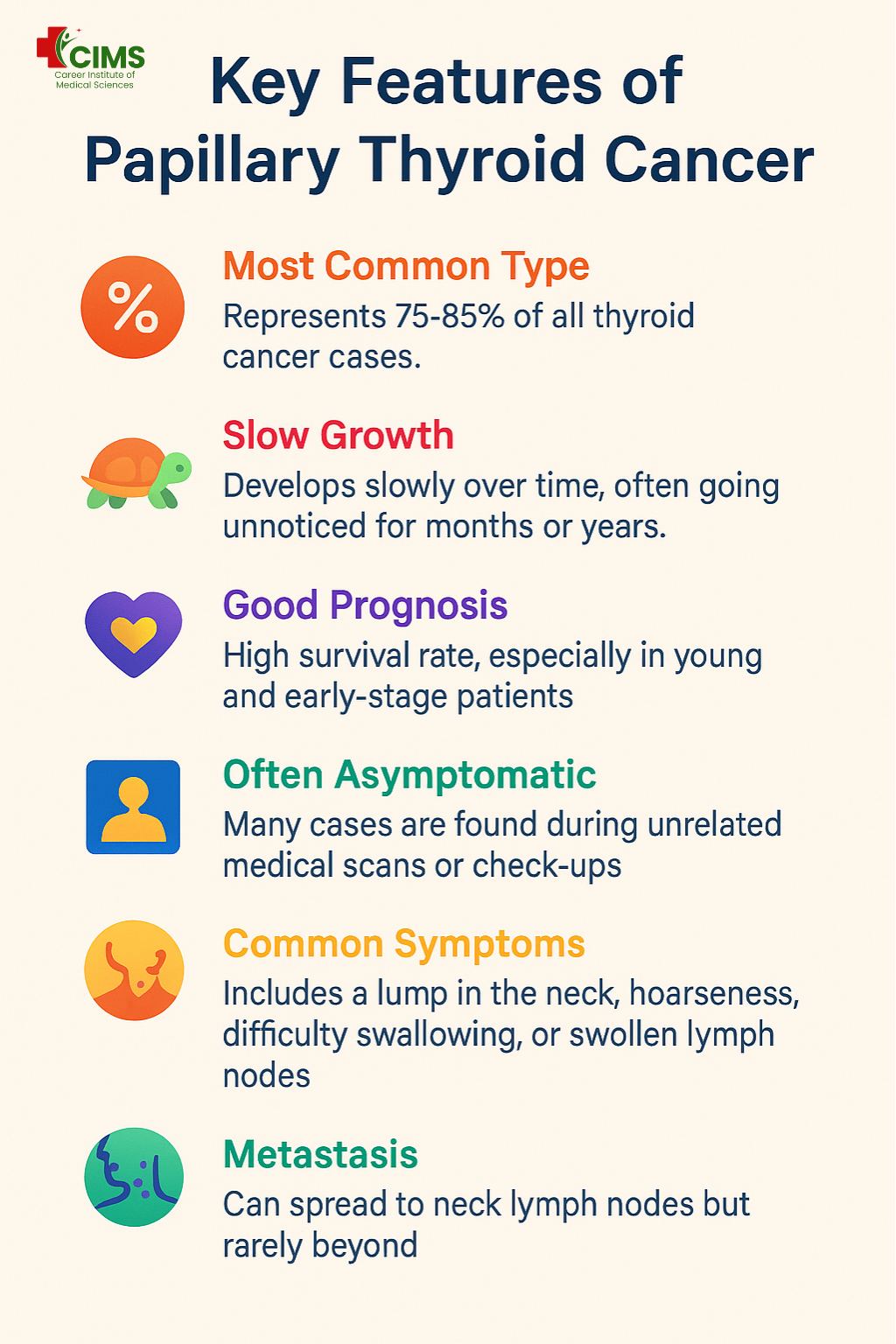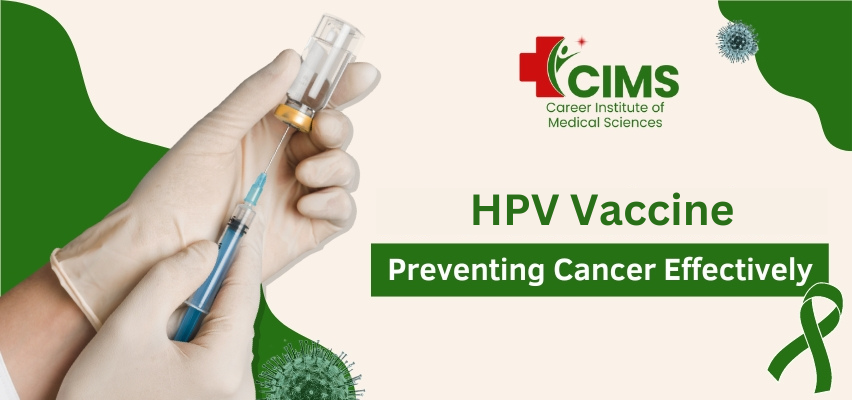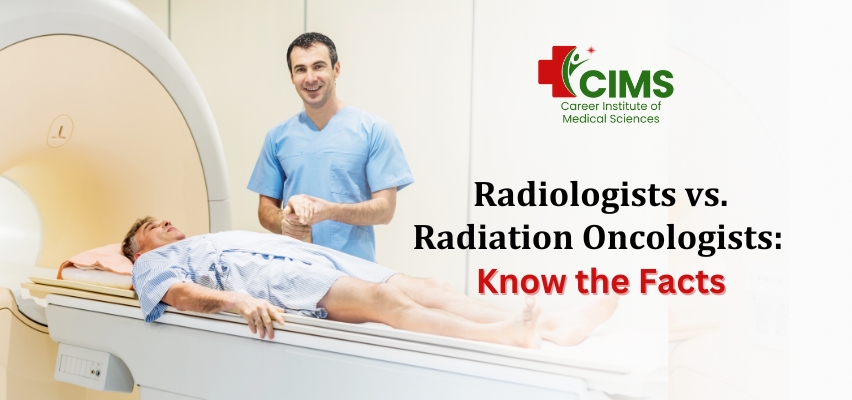Table of Contents
TogglePapillary thyroid cancer (PTC) is the most common type of thyroid cancer, accounting for approximately 75-85% of all diagnosed thyroid cancers. It is usually a slow-developing cancer with a very high Life Expectancy, has a good rate of survival, especially in youngsters and patients with cancer detected at an early stage. With the growing factor of medical science and access to caring facilities, papillary thyroid cancer is now easily treatable, which makes early detection and awareness essential.
What is Papillary Thyroid Cancer?
Papillary Thyroid Cancer starts in the follicular cells of the thyroid gland and is characteristically slow to spread. While it can certainly metastasize to the lymph nodes in the neck, distant spread to other parts of the body is rare. This is why it is one of the best-prognosed cancers in the world in comparison to others, and especially in younger individuals.
Key Characteristics of Papillary Thyroid Cancer

What Causes Papillary Thyroid Cancer?
The exact cause of papillary thyroid cancer is often unknown. However, certain risk factors may increase the likelihood of developing it:
- Radiation Exposure in Childhood
- Family History of thyroid cancer
- Genetic Mutations
- Female Gender (more common in women)
- Age (more frequent in people aged 30-50)
Symptoms to Watch For
While many cases are asymptomatic, the following signs should not be ignored:
- A persistent lump or swelling in the neck
- Hoarseness or changes in the voice
- Difficulty swallowing
- Pain in the neck or throat
- Swollen lymph nodes
If you or a loved one notices these symptoms, it’s essential to consult a healthcare provider for evaluation and testing.
Treatment Options for Papillary Thyroid Cancer
Papillary thyroid cancer is treated using a combination of approaches:
- Surgery: Removal of part or all of the thyroid gland (thyroidectomy).
- Radioactive Iodine Therapy: Destroys remaining cancerous thyroid tissue.
- Thyroid Hormone Therapy: Maintains hormone balance and prevents cancer recurrence.
- Regular Monitoring: Ongoing follow-ups and blood tests ensure effective management.
Why Early Detection Matters
Routinely, annual check-ups along with neck examinations can help diagnose diseases at an early stage. Patients showing symptoms of the condition are advised to seek advice from qualified healthcare professionals. Approximately 95% of individuals are diagnosed with papillary thyroid cancer at an early stage.
CIMS Hospital, Bhopal: Trusted Care in Central India
In Central India, the Career Institute of Medical Sciences (CIMS) Hospital, Bhopal, holds notable recognition as a trustworthy and dependable healthcare facility that provides cost-effective services alongside advanced technologies like cancer treatment. Patients consider this hospital a trusted center for effective and efficient remedial care. Numerous patients from within Madhya Pradesh and bordering states consider CIMS hospital as a primary choice for cost-effective healthcare services with proficient and skilled oncologists because of their timely identification of cancer, modernized facilities, and modernized patient care.
In Summary
Papillary thyroid cancer may sound alarming, but with early diagnosis and appropriate treatment, it is one of the most curable types of cancer. Whether it’s surgery, hormone therapy, or long-term follow-up care, most patients go on to live healthy, normal lives. And with trusted institutions like CIMS Hospital, Bhopal, offering top-class treatment, quality cancer care is now within reach for all.
If you or someone you know is at risk or showing symptoms, don’t wait. Early detection saves lives.



